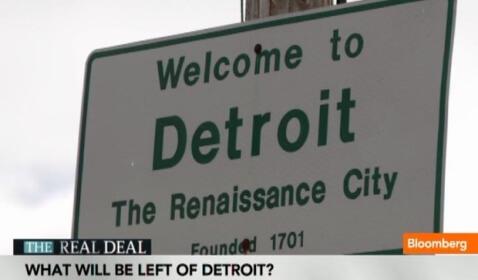In March 2013 the state governor declared a financial emergency and On July 18, 2013, Detroit filed the largest municipal bankruptcy case in U.S. history. On December 3, citing its $18.5 billion debt, U.S. judge Stephen Rhodes, declared that negotiations with its thousands of creditors were unfeasible.
According to the Detroit News, 47 percent of the city’s taxable parcels were delinquent on their 2011 tax bills, resulting in about $246 million in taxes and fees going uncollected. High unemployment was compounded by depressed property values, abandoned buildings, abandoned neighborhoods, high crime rates and a pronounced demographic imbalance. The crisis resulted in the state of Michigan taking over administrative control of the city. The state governor declared a financial emergency in March 2013, appointing an emergency manager, Kevyn Orr.
Detroit Emergency Manager Kevyn Orr said time is running out for creditors to reach an agreement with the city on a plan to resolve the biggest U.S. municipal bankruptcy and reduce Detroit’s $18 billion debt. According to Bloomberg News, Kevyn Orr said at a conference in New York that “We’re past the point of having the luxury of having a lot more time to convince folks.” He hopes to have enough agreement among creditors to get a debt-adjustment plan enacted later this year. Detroit has filed a lawsuit aimed at voiding $1.44 billion in a pension-related debt.
Looking for jobs in Detroit? Click here.
Image credit: www.bloomberg.com













































